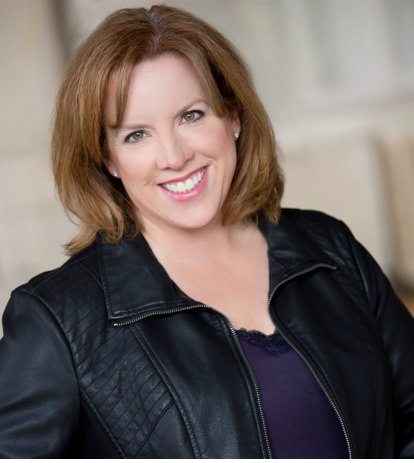
Health Tech World hears from mySysters app co-founder Cindy Moy Carr about her experiences as a health tech leader
How would you describe the work that you do?
I help women navigate perimenopause and menopause. That’s the core purpose of mySysters.
The app has a symptom tracker that shows the days when the symptoms are more severe. By tracking symptoms over the course of several weeks, women can look for lifestyle triggers for symptoms. For me, it’s usually caffeine.
I also give talks and webinars to help women deal with their symptoms in the workplace.
Most of us aren’t equipped with the language to approach an employer to discuss pelvic pain or hot flushes. There are strategies to make it easier.
Ultimately my work helps women get the best outcome for their healthcare dollar.
This is a big issue in the United States, where half the women don’t have access to an ob/gyn, and even if they do, they may not be able to afford an appointment.
How did you get into the industry?
Soon after I turned forty I began having migraines and vertigo. I didn’t know what was happening.
I was a lawyer with small children, ageing parents and a husband who survived cancer at 28 and then a heart attack at 48.
It would be ten years before I’d learn the mysterious ailments that kept derailing my life were perimenopause-related.
I lived in Minneapolis at the time, which is home to some of the biggest medical companies and hospitals in the world.
I had good health insurance and excellent doctors. Yet my health deteriorated to the point that I was nearly housebound for six months.
Doctors told me it was psychosomatic and I went to therapists seeking a cure for hypochondria.
When the therapists suggested that perhaps the physical pain was real I told them they were crazy.
It was a nurse who finally figured out what was going on and explained who I needed to see and what I needed to do.
Discovering the stigma around perimenopause and lack of information available led me to develop mySysters in 2016 so my sister and friends wouldn’t have to go through what I experienced.
What most excites you about working in health tech?
Hearing from women who feel better! They go from feeling despondent and alone to feeling part of a community and in control of their healthcare. I know exactly how they feel!
To be able to help someone make that change is very life-affirming.
What skills do you need to excel as a health tech leader?
Empathy and ethics.
In the US, human subjects in research trials are protected by a federal regulation known as the Common Rule, which implemented the principles of The Belmont Report.
Those principles are respect for persons, beneficence (obligation to maximize benefits and reduce harm) and justice.
It shouldn’t be difficult for a health tech CEO to follow those principles, whether required to by law or not. Those are foundational principles for everyone in everyday life.
What is your biggest challenge right now?
The issues of data privacy, data security and data protection. We’re based in Newcastle upon Tyne, England, and we have Systers around the globe.
Every country has different laws. In the US, every state has different laws. I use mySysters myself, so I have the same concerns as our customers when it comes to these issues.
I’m also an attorney and deal with these issues as a tech counsel.
When it comes to data, I go back to the principles mentioned earlier–respect for persons, beneficence, justice–and act far more cautiously than law dictates because it’s the right thing to do.
My friends and I deal with data breaches all the time and we’re frustrated and angry with lawmakers.
One of my friends found out yesterday that her medical records were stolen through data breaches at TWO different healthcare clinics.
The hackers got everything from credit card info to Social Security numbers to the most intimate medical information for thousands of patients.
There’s a huge opportunity for a country to step up and be a leader in this jurisprudence, not only for health tech but across all sectors.
The first time someone stole my identity was thirty years ago. They tried to take out student loans in my name.
They didn’t know I was in law school and had student debt of my own so they were caught immediately.
Unfortunately it’s become easier to steal identities and harder to protect ourselves. The law hasn’t kept up.
What does success in health tech look like?
Success is making an impact in the world that helps other people, forming relationships with new people who challenge you and having personal satisfaction from your work.
When I founded Vorsdatter, which translates roughly from Old Norse to ‘wise daughters,’ there were no perimenopause or menopause symptom trackers.
mySysters was the only one in the world for three years.
It’s written about in academic articles and thesis papers, and several twenty-something graduate students in countries with socialised medicine blame mySysters for ‘medicalising’ menopause, which I find ironic given how it took me a decade to get any medical help for my perimenopause.
Women get healthcare for infertility, pregnancy and childbirth and no one chastises them for medicalising it or claims it makes it ‘unnatural,’ but ask for help for perimenopause and a world of judgement rains down on you.
Ultimately though it’s the personal messages I get from women telling me how mySysters helped them, because I know how it feels to go through it alone.
The other part of success in health tech is forming relationships with people.
I’m an extreme introvert. It’s very challenging to overcome, but I’ve met some of the kindest, friendliest people in health tech. Maybe it’s because health tech, by definition, often deals with difficult or distressing topics and requires a certain level of vulnerability.
Which quote resonates with you?
“Do interesting things and interesting things will happen to you.” by Sir John Hegarty.
One of the most striking things about innovation is how many people develop products in response to something that happened to them or someone they love.
They had a problem and a solution wasn’t available, so they set out to create it to spare others what they experienced.
These stories are so compelling. I meet the most compelling people from all over the world and learn so much from them.
What are your interests outside of health innovation?
I travel a lot, mostly between the UK and the US. This year I’ve been to Singapore and Japan.
My first career was as a writer–I’ve written several books, both fiction and nonfiction, including one on healthcare law for the American Bar Association.
The kids are now asking about family history and I’m putting all the stories to paper.
Since the pandemic I’m much more diligent about scheduling ‘friend dates.’
Recently four of us got together at a microbrewery for bingo night and it was so much fun!
Learn more about mySysters at mysysters.com




